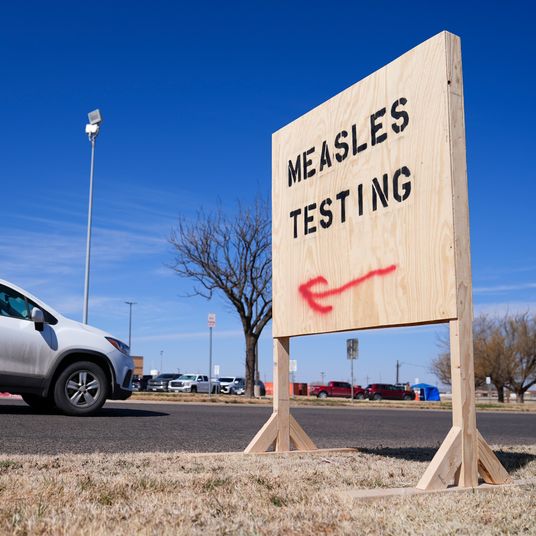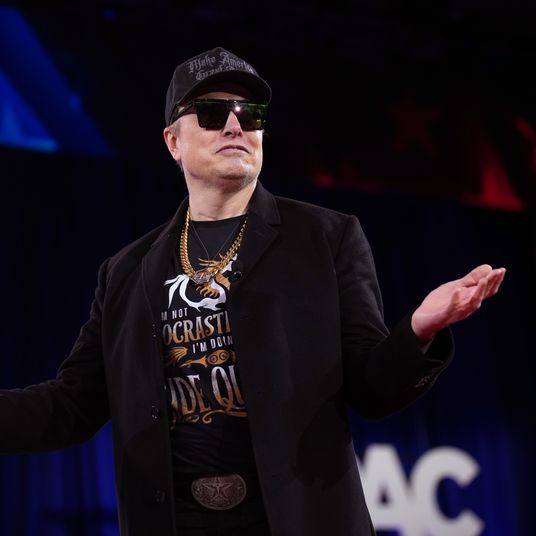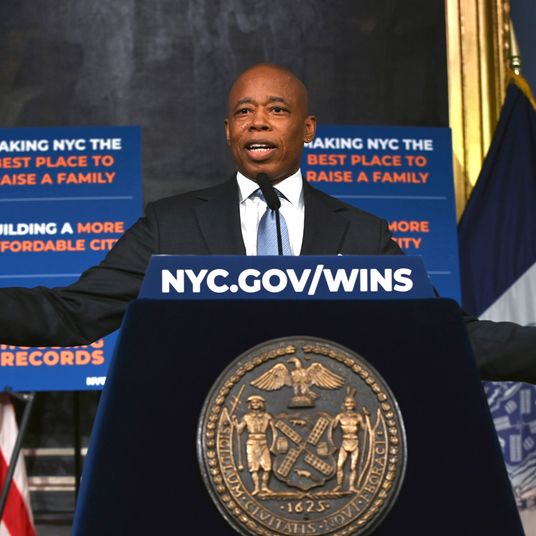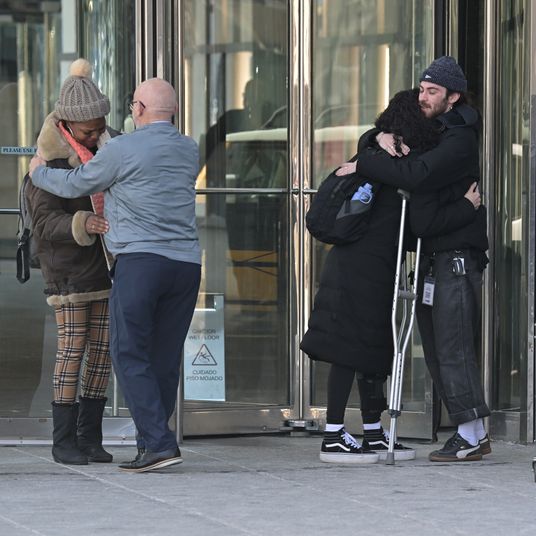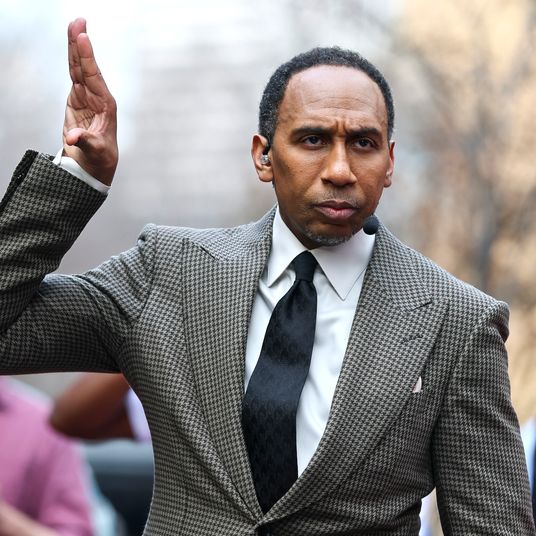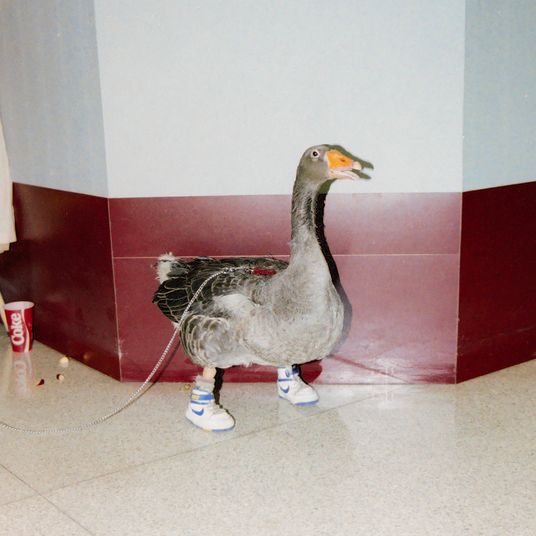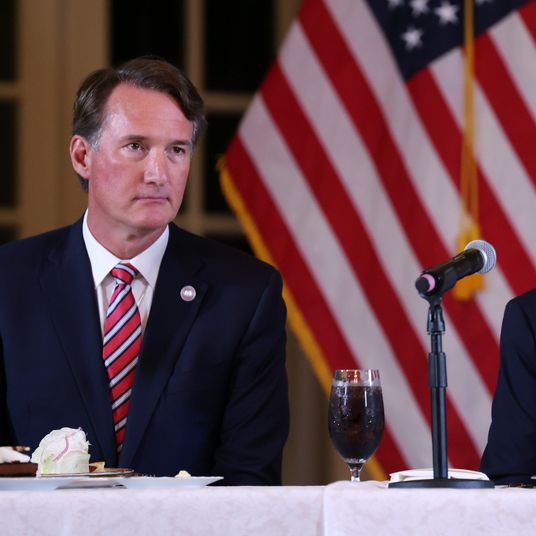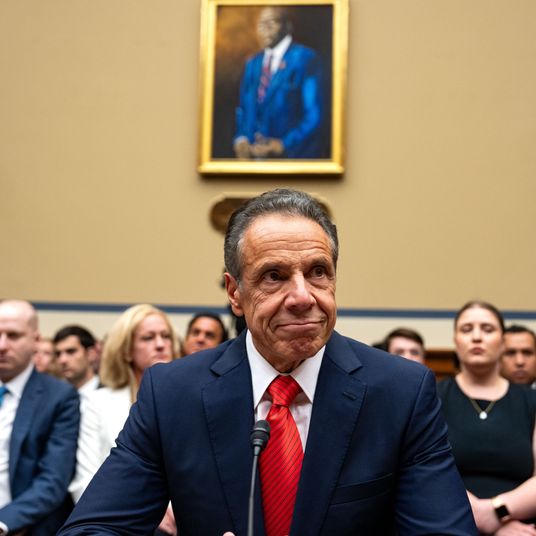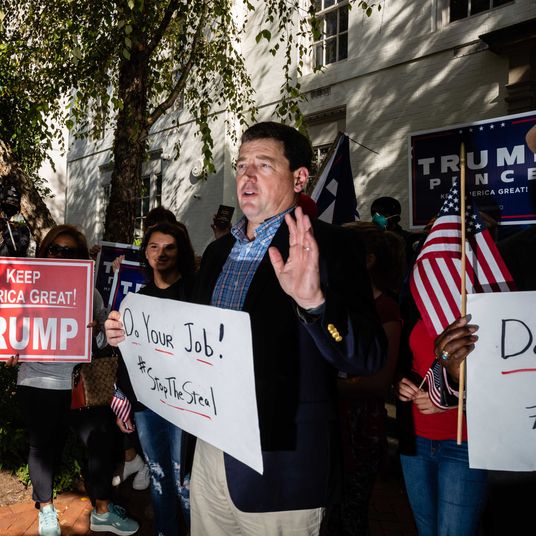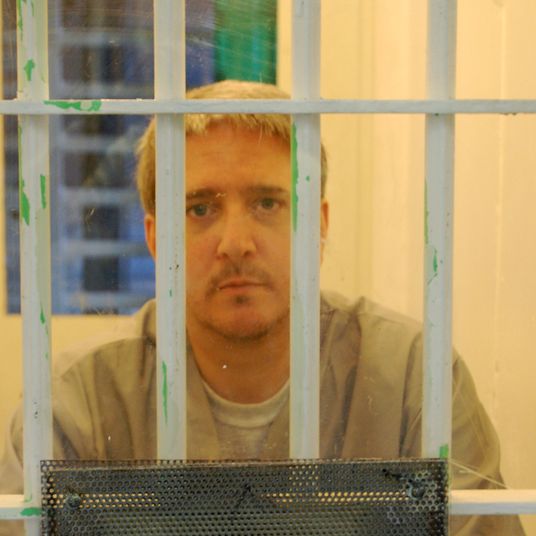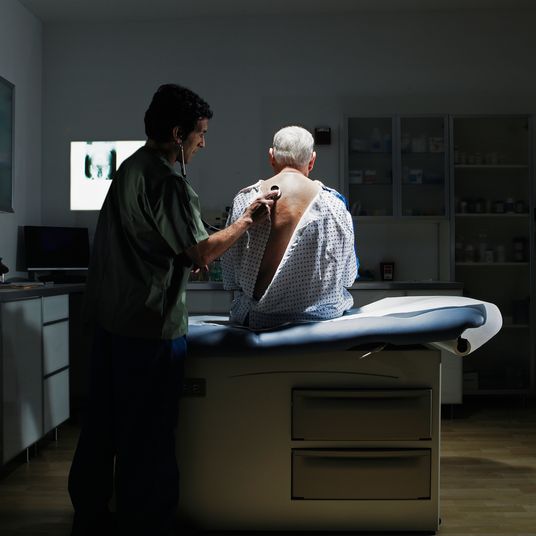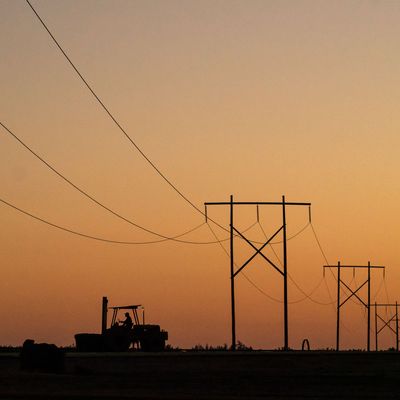
With the Pacific Northwest in the grips of a historic heat wave, the effects of climate change are difficult to ignore. But while photos of buckled roads and melted streetcar cables have grabbed the public’s attention, infrastructure isn’t the only casualty of dangerous heat. In Oregon, a farmworker died of heat-related causes at a St. Paul worksite. Advocates for farmworkers worry that the severe heat may lead to additional deaths, as well as nonfatal incidences of illnesses like heat stroke and heat exhaustion. The United Farm Workers have been sending out volunteers to provide cold water, sports drinks, and information to farmworkers in Oregon and Washington, where the cherry harvest is underway. One such volunteer is Chelsea Dimas, who worked in the orchards as a child and still has family who perform farm labor. She spoke to Intelligencer about her volunteer work with the United Farm Workers and what she’s seen at the farms she’s visited.
Her account has been edited and condensed for clarity and length.
I am from the Yakima Valley, specifically, Sunnyside, Washington — though I’m actually originally from California. This is where our family brought us for a better life. I’ve been here basically all of my life, except for when I went away to college. Service and human rights have always been my thing. With the issues that I saw growing up, I felt that it was my calling to help however I could and to serve my community — that’s why I am now running for city council here. I don’t have any professional political experience. I currently work remotely for the Diversity Center of Santa Cruz County.
I pretty much grew up in the fields. My parents worked there for a very long time when they were young, and they didn’t have access to child care or anything like that. So they would take us kids along with them to work. As the oldest, I would be the one handling my brothers while my parents were busting their asses out there. And once we got a little bit older, we actually joined them for some time. My parents are very fortunate that they were able to get out and find their own career paths. But they’re still very active with the farmworking community. My mom’s a social worker now, for an agency that serves only farmworkers and migrant families. She’s kind of the biggest inspiration for why I do the work that I do.
I have been volunteering with United Farm Workers. I basically just saw a flier and, you know, with this heat wave, I was just like, man, we’ve got to get out there. We paired up in groups and tried to get to as many farms in the area as we could. We were handing out cold bottled water, sports drinks like Gatorade, and other resources like fliers explaining the symptoms of heat exhaustion and heat stroke and what to do, just to inform our workers. Some of them looked tired, so we talked with them and let them know that they should probably take a break. We told them that they could call 911 or we would happily call for them if they were not feeling well.
The workers were sweating, very red; it’s extremely hot outside and they’re wearing layers of clothing to protect themselves from the sun. They were in long-sleeved sweaters, completely covered from head to toe, including face masks. And they looked pretty beat. Some of them had been working from 3 a.m. or 4 a.m. And there were others who had started working overnight, at 11 p.m. to midnight, and were still there around the hours of 8 a.m. and 9 a.m.
They need resources, they need support, they need to know that they are in a safe environment and that they can come to their employer for anything. I don’t think that there is a sense of trust or even a relationship between those farmworkers and their employers. It seems that there’s a huge disconnect, like they’re just there to work and basically that’s it. I don’t think the workers really understand that regardless of their legal status, they have human rights they’re entitled to. There needs to be some sort of communication. Someone from the employer should be walking around and checking in on their people. But beyond that, there need to be basic resources. I didn’t see any water stations. I didn’t see any AC or cool, shaded areas. I can’t even imagine how our farmworkers were feeling in all of those layers, working for several hours, doing this every single day. It’s just devastating to see these conditions. Many of them didn’t even have any supplies with them. No coolers, no water. At least at the farms that I visited, workers were heading back to their vehicles, which were a long walk away, just to get some water or snacks. Then they would just go back and continue working.
I was feeling immediate symptoms of heat exhaustion just being out there. It was already in the 90s at about 9 a.m., and then on Monday when we finished up, it was over 100 degrees and people were still out there. I am definitely concerned that someone could get hurt and it could be fatal. Watching workers going up and down ladders carrying their large cherry bins, it’s scary to think that maybe one of them might feel extremely lightheaded and just fall off. That’s actually why I stopped working: I fell off a ladder and broke my arm. I was hot and I passed out and fell. I imagine that some of them may have already fallen and maybe didn’t report it.
People have been fighting against these conditions for decades now, before I was even born. It’s insane how being out there, handing out water, everything was exactly the same. It’s like I was walking back into my own past, when I was 13 years old. Exactly the same. And I have family that are still working in the cherry orchards right now. I worry. We’ve all been checking in with our family that are out there. But some of them, specifically the farmworkers whose status is illegal, are afraid to speak up. They’re scared of retaliation. They’re scared of losing their livelihoods and putting their families and their housing at risk. And so they won’t ever speak up and say something about it until it’s maybe too late.
There’s been this misunderstanding since I’ve been speaking publicly about all of these issues. The UFW, our volunteers, and other organizations fighting for farmworker rights are in no way trying to vilify farmers or property owners. What we’re trying to do is make things right. And we’re more than open to working with them to ensure that these conditions are improved. We’re not trying to attack, we’re trying to help people. Farmworkers are often belittled and forgotten about when they’re the ones putting food on our tables. If we can work together, all of us, those who are in power and those who are not, then we can solve this issue. These people are working so hard and the least we can do is go out there and make sure that they’re okay, and just say thank you.






